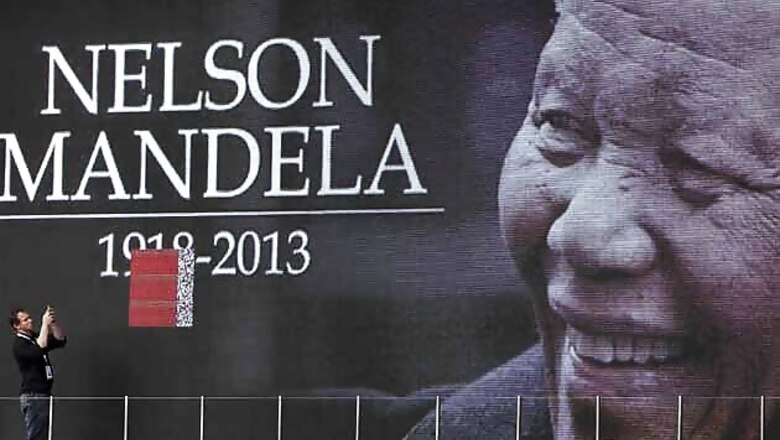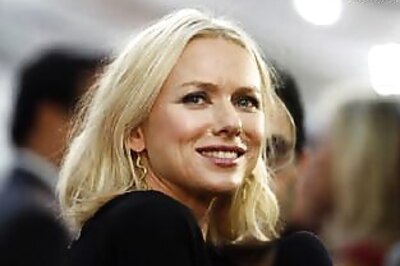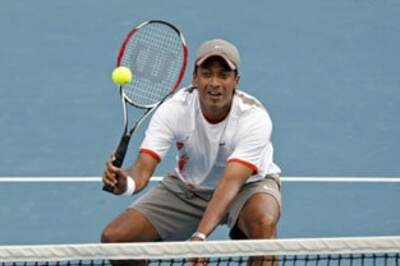
views
Big guns fired a salute in the rural village where Nelson Mandela grew up and military servicemen marched stiffly behind his casket on a winding dirt road on Sunday as South Africa said goodbye for the last time to the man who reconciled the country in its most vulnerable period.
Several thousand guests, some singing and dancing, gathered in a huge tent at the family compound of the anti-apartheid leader, who died on December 5 at the age of 95 after a long illness. When the funeral service began, they sang the national anthem in an emotional rendition in which some mourners placed fists over their chests.
Mandela's portrait looked over the assembly in the white marquee from behind a bank of 95 candles representing each year of his remarkable life. His casket, draped in the national flag, was placed on a carpet of cow skins below a lectern where speakers delivered eulogies.
"I think all of us will agree today the person who lies here is South Africa's greatest son," said Cyril Ramaphosa, deputy president of the ruling African National Congress.
Chief Ngangomhlaba Matanzima, a representative of Mandela's family, thanked military doctors who were part of the medical team that took care of Mandela during his hospital stays and at his home in the final months of his life. He asked them to stand up. Mourners applauded.
"You did a great job in taking care of our father. We can't thank you enough for that," Matanzima said.
Mandela's widow, Grace Machel, and his second wife, Winnie Madikizela-Mandela, were dressed in black and sat on either side of the South African president, Jacob Zuma.
Guests included veterans of the military wing of the ANC, the liberation movement that became the dominant political force after the end of apartheid, as well as US Ambassador Patrick Gaspard and other foreign envoys. Britain's Prince Charles, billionaire businessman Richard Branson and former Zimbabwean prime minister Morgan Tsvangirai were also there.
Earlier, South African honor guards from the army, navy and air force marched in formation. Mandela's casket, covered by a national flag, was transported on a military vehicle to the tent, where pallbearers carried it on a red carpet into the tent where guests awaited.
After the funeral ceremony, a smaller group of guests was to attend Mandela's burial at a family grave site on the estate in Qunu, a rural village in Eastern Cape province.
The burial will end 10 days of mourning ceremonies that included a massive stadium memorial in Johannesburg and three days during which Mandela's body lay in state in the capital, Pretoria.
Mandela's casket arrived at the family compound from the capital on Saturday. It was accompanied by an enormous convoy of police, military and other vehicles.
Mandela spent 27 years in jail as a prisoner from apartheid, then emerged to lead a delicate transition to democracy when many South Africans feared that the country would sink into all-out racial conflict. He became president in the first all-race elections in 1994.
While South Africa faces many problems, including crime, unemployment and economic inequality, Mandela is seen by many compatriots as the father of their nation and around the world as an example of the healing power of reconciliation.


















Comments
0 comment